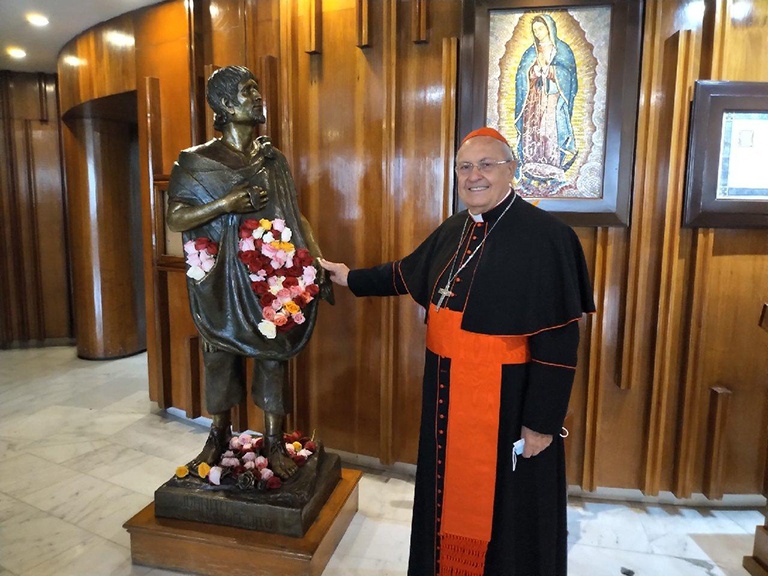
Pope Francis called on Mexicans to focus on the present and look to the future rather than dwelling on the past as the country celebrates the bicentennial of its independence.
In a letter to Archbishop Rogelio Cabrera López of Monterrey, president of the Mexican bishops’ conference, the pope said: “The anniversary you are celebrating invites not only looking to the past to strengthen your roots, but to also continue living in the present and building a future with hope and joy, reaffirming the values that have been constructed and identify you as people … such as independence, unity and religion.”
“Strengthening roots,” the pope said, involved reevaluating the past.
But he urged Mexicans to look at the scandalously violent present, in which drug cartels and organized crime – full of people practicing popular piety and considering themselves proper Catholics – wage wars for territory, kill and disappear innocent Mexicans and force thousands to flee their homes.
“Actions in more recent times cannot be ignored, actions committed against the Christian religious sentiment of the grand part of the Mexican people, provoking deep suffering,” Pope Francis wrote.
“But we cannot evoke the pains of the past to stay there, rather to learn from them … with a view toward healing wounds, cultivating an open and respectful dialogue among our differences, and building the long-awaited fraternity, prioritizing the common good over vested interests, tensions and conflicts.”
Mexico declared independence from Spain Sept. 16, 1810, in a movement started by Father Miguel Hidalgo Costilla. Independence was fully achieved Sept. 27, 1821, after a decade of conflict.
The roles of Father Hidalgo Costilla and another independence hero, Father José María Morelos – national heroes, whose images adorn banknotes and names grace streets and towns across Mexico – are complicated for the Catholic Church as it was commonly believed the churchmen were excommunicated. A 2007 report by Father Gustavo Watson, a historian, found both men died as Catholic priests.
Father Hidalgo Costilla rallied people behind images of Our Lady of Guadalupe, the national patroness, Pope Francis wrote.
“María of Guadalupe, the Virgin Morenita, addressing in a particular way to the smallest and neediest, favored brotherhood and freedom, reconciliation and inculturation of the Christian message, not only in Mexico but in all the Americas,” he wrote. “May she continue to be for all of you the sure guide that leads you to communion and to full life in her Son.”
Cardinal Leonardo Sandri traveled to Mexico to represent Pope Francis for the bicentennial and celebrated Mass Sept. 26 at the Basilica of Our Lady of Guadalupe.
“May the bicentennial of Mexico’s independence be under your gaze, oh Virgin of Guadalupe,” he said in his homily, “so no man or nation treads on the rights of others, especially the poor and oppressed.”
Cardinal Sandri ended his homily with a reference to the Cristero Rebellion of the 1920s, a time of Catholic persecution, as parishes were closed and Catholic rebels took up arms against an anti-clerical government. The Mexican state and Catholic Church remained officially estranged until Mexico and the Vatican established relations in 1992.
“And no nation confuses the idea of a presumed human freedom as a way to free oneself from the sweet presence of God and his announcement in society,” the cardinal said, “as taught to us by St. Joselito Sánchez del Río and the Cristero martyrs, with your name on their lips, Our Lady of Guadalupe.”









